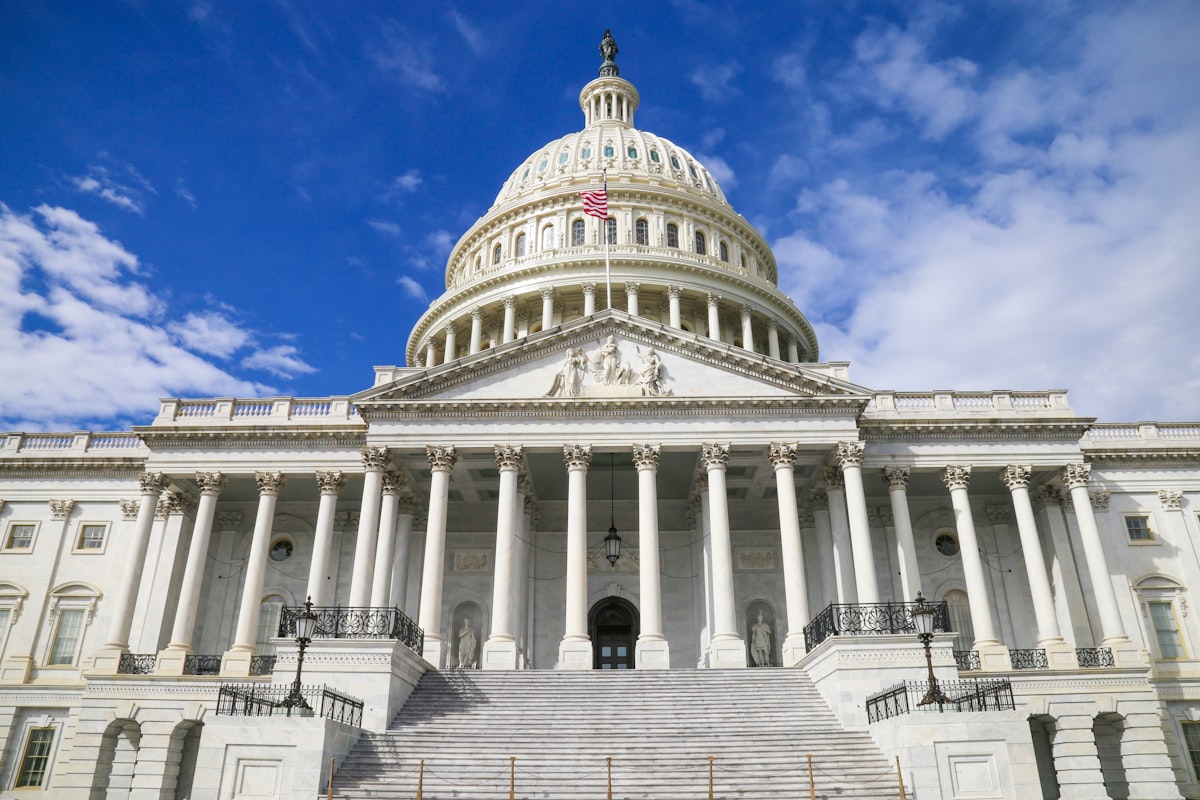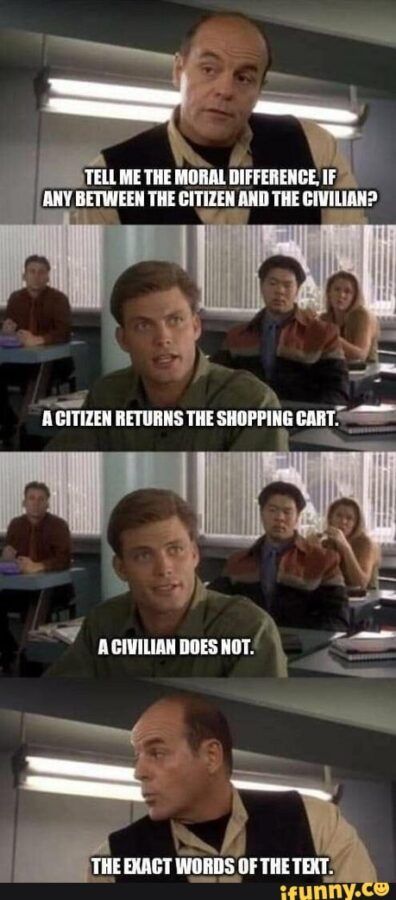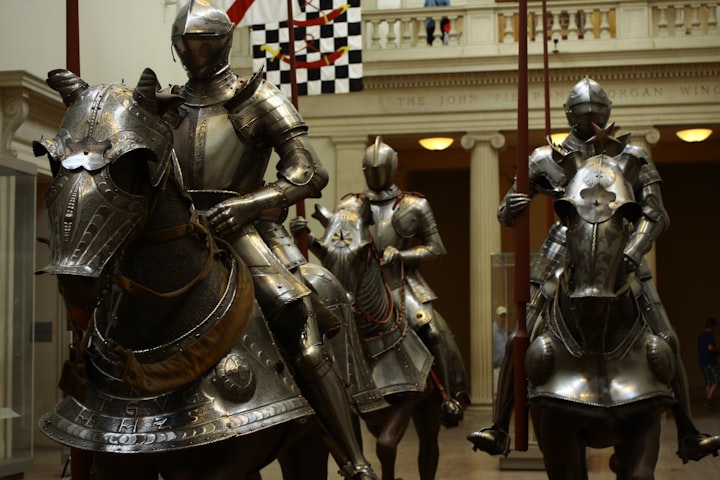On Citizenship
At the end of the day, a Citizen must struggle against the decay of their minds, body, and character. Sometimes, that requires violence of action. Sometimes, that requires polite society to build for the future. Sometimes, that requires putting your shopping cart back in the corral.

Over in my TSL class, there’s a joke going around. One of the requirements of TSL is that we make sure to do a good deed every day. I get that this sounds very… boy scout-like. It turns out that I’m very okay with that, but that’s a whole other soap box.
One of the good deeds that we commonly find to do is returning shopping carts. There’s this idea floating around that returning your shopping cart is the “ultimate litmus test for whether a person is self-governing." Either way, one of my classmates posted the following image:

I’ve been thinking a lot about what it means to be a good Citizen. The meme above is from a part of the movie Starship Troopers; in particular, it comes from the classroom scene at the beginning of the movie:
Rasczak: Something given has no value… Naked force has settled more issues in history than any other factor. The contrary opinion ‘violence never solves anything’ is wishful thinking at its worst. What’s the moral difference, if any, between a civilian and a Citizen?
Rico: A Citizen accepts personal responsibility for the safety of the body politic, defending it with his life. A civilan does not.
The scene closes with the quote “I doubt anyone here would recognize civic virtue if it bit them in the ass."
I don’t see a lot of people trying to be good Citizens these days. I see people letting fear and the Algorithm rule their lives. People see things falling apart but don’t try to claw back even a little order from chaos. The thing is, picking up that little piece of trash instead of just walking past builds a mindset. It’s not letting wrongs stay wrong. You’re not going to fix all the world’s problems. In the grand scheme of things, it’s a drop in the bucket. It’s a mindset.
Like Rasczak says, violence is often a useful tool in solving problems. Violence isn’t always brutish, though brute force has its place. Violence can be swift, decisive action in the face of polite civilization. Polite civilization tends to sweep problems under the rug. Polite civilization will choose convenience and challenge over conflict, including moral conflict. Polite civilization will stand by while evil acts, waiting for the police or the authorities to right the wrong. A Citizen must stand ready to take action against evil, including moral complacence. Violence isn’t called for all the time, or even most of the time. Violence is what breaks the complacency of polite civilization, that resets the moral decay.
Polite civilization, however, provides us the peace and stability to thrive in the face of an uncaring world. It allows art and culture to flourish. It allows us to build for the future. The trick is balance polite civilization and violence, to break our stagnation and bring order to entropy.
That balance requires Citizenry that refuses to stand idly by when they encounter the wrongs of the world. This requires a Citizen who is strong of mind, body, and character. It means being educated, knowing history because (as Winston Churchill put it), “those who fail to learn from history are doomed to repeat it." A Citizen must be physically capable to set right to wrong. They should be healthy inasmuch as they are able to do so. Mark Rippetoe said, “Strong people are harder to kill than weak people, and generally more useful." A strong character is required for a morally healthy society.
At the end of the day, a Citizen must struggle against the decay of their minds, body, and character. Sometimes, that requires violence of action. Sometimes, that requires polite society to build for the future.
Sometimes, that requires putting your shopping cart back in the corral.



Comments ()